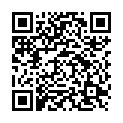|
|
|
| Module code: MAM_24_V_2.07.ATK |
|
4SU+2PA (6 hours per week) |
|
6 |
| Semester: 2 |
| Mandatory course: yes |
Language of instruction:
German |
Assessment:
Oral examination
[updated 04.03.2024]
|
MAM_19_V_2.07.ATK (P241-0008) Engineering and Management, Master, ASPO 01.10.2019
, semester 2, mandatory course, Specialization Process Engineering
MAM_24_V_2.07.ATK Engineering and Management, Master, SO 01.10.2024
, semester 2, mandatory course, Specialization Process Engineering
|
90 class hours (= 67.5 clock hours) over a 15-week period.
The total student study time is 180 hours (equivalent to 6 ECTS credits).
There are therefore 112.5 hours available for class preparation and follow-up work and exam preparation.
|
Recommended prerequisites (modules):
None.
|
Recommended as prerequisite for:
|
Module coordinator:
Prof. Dr. Matthias Faust |
Lecturer: Prof. Dr. Matthias Faust
[updated 07.12.2023]
|
Learning outcomes:
After successfully completing this module, students will be familiar with the various components of process engineering/energy technology systems, be able to assemble systems from them and design them in accordance with the relevant regulations.
They will be able to understand, explain and calculate selected basic operations in process engineering and its equipment and to create models based on the physical/chemical relationships.
[updated 04.03.2024]
|
Module content:
Plant components and their operating behavior, for example:
Piping
(Pressure stages, flange systems, material, cleanability/cleaning systems (CIP/molch),
corrosion behavior, pipe forces, processing methods, calculation of pressure loss)
Pipe connection systems
Tanks
Static and dynamic pipe sealing systems, apparatus, pumps and valves
Pump design, and various special designs (hermetically sealed motors, magnetic coupling)
Fields of application and valve design
Heat exchangers
Design guidelines, legal requirements and calculation methods
for planning process plants, e.g:
Pressure Equipment Directive
Surge pressure calculations
Machinery Directive
Risk assessment
Flow diagrams for process engineering plants
Selected basic operations,
their principles and apparatuses, for e.g:
Ultrafiltration, solution-diffusion processes, gas separation, pervaporation, dialysis, reverse osmosis, gassing, degassing
Interfacial processes, absorption, adsorption, chromatography, chemisorption, crystallization
Mixing
High-pressure process engineering (e.g. Haber Bosch process, polyethylene synthesis)
[updated 04.03.2024]
|
Teaching methods/Media:
Lecture with exercises,
Exercises for the lecture, worksheet exercises and presentations
Slide handouts in electronic form
Seminaristic instruction and lab exercises
[updated 04.03.2024]
|
Recommended or required reading:
Bernecker Gerhard, Planung und Bau verfahrenstechnischer Anlagen 2001; Ullrich, Hansjürgen, Wirtschaftliche Planung und Abwicklung verfahrenstechnischer Anlagen 1996, VDI; Auftragsabwicklung im Maschinen- und Anlagenbau 1991; Hirschberg, Hans Günther, Verfahrenstechnik und Anlagenbau 1999; Frank P. Helmus, Anlagenplanung von der Anfrage bis zur Abnahme, Wiley-VCH Weinheim 2003; Walter Wagner, Planung im Anlagenbau, Vogel-Verlag 2018; Kreiselpumpen, Handbuch für Entwicklung, Anlagenplanung und Betrieb,Springer Vieweg 2014; Lohrengel, Burkhard, Einführung in die thermischen Trennverfahren, Oldenburg-Verlag 2007
[updated 04.03.2024]
|


